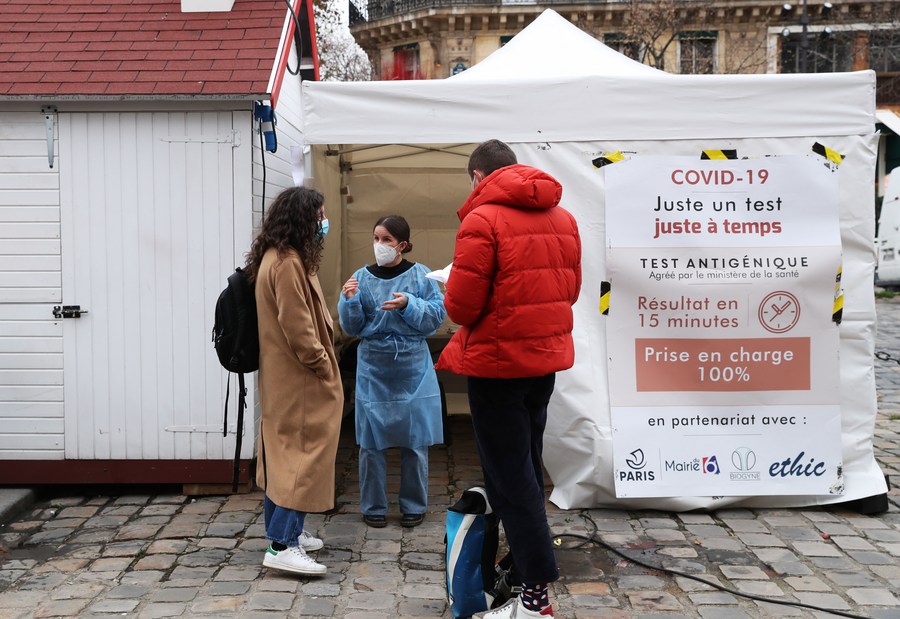France's COVID-19 cases spike again
 0 Comment(s)
0 Comment(s) Print
Print E-mail Xinhua, December 19, 2020
E-mail Xinhua, December 19, 2020

Following a recent sharp drop in the number of coronavirus cases thanks to the restrictive measures, infections have begun to spike again in France, signaling that tough months are still ahead in the world's fifth worst infected country, experts warned on Friday.
French health authorities reported 15,674 new infections on Friday, bringing the cumulative number of COVID-19 patients to 2,442,990.
The number of coronavirus-related fatalities exceeded 60,000 for the first time after a further 610 people have died in the past 24 hours, the Public Health Agency said.
The reproduction rate (R0) is slightly above one almost across the whole country. This means that each person who has the disease will transmit it to more than one person.
The accelerated spread of the virus came as no surprise to Arnaud Fontanet, an epidemiologist at the Pasteur Institute, one of France's main scientific research centers.
"As soon as we ease the restrictions, the virus begins to circulate again ... If more than half of the population is not immune, the virus will continue to circulate," he said.
The number of people who tested positive for the virus in a single day reached an all-time high of 60,486 on Nov. 6. The current average is 10,000.
However, the downward trend has been flattening after shops were allowed to reopen on Nov. 28. In the past two weeks, France reported between 11,000 and 14,000 new cases per day, well above the target of 5,000 set by the government for further easing the restrictive measures.
"The fall in infections has stopped and we are entering a risky period of Christmas holidays. ... We will have a very tense situation, which will continue over the first quarter of 2021," Fontanet told France Inter radio.
"Unfortunately, I do not see an improvement in the short term because the vaccination's impact will only be felt at the end of the first half of the year," he said.
According to research conducted by the Pasteur Institute on a sample of 25,600 infected people, 45 percent had caught the virus after sharing dinner with family, and 53.1 percent got infected while they shared a meal with friends.
Under the current rules, up to six people per household are allowed to gather for Christmas and New Year's Eve. Families who plan to host elderly and vulnerable people should quarantine for a week before Dec. 24 if possible.
The 8 p.m. to 6 a.m. curfew currently in force will be waived on Christmas Eve but maintained on New Year's Eve.
A BVA poll released on Friday showed that 71 percent of respondents would respect the "rule of six" (any social gatherings of more than six people will be against the law), while 68 percent said they would not wear a face mask during the Christmas dinner.
Thirty percent of respondents aged between 18 and 24 years said they would not respect the night-time curfew.
As the world is struggling to contain the pandemic, countries including France, China, Russia, the United Kingdom and the United States are racing to find a vaccine.
According to the website of the World Health Organization, as of Dec. 16, there were 222 COVID-19 candidate vaccines being developed worldwide, and 56 of them were in clinical trials.






Go to Forum >>0 Comment(s)